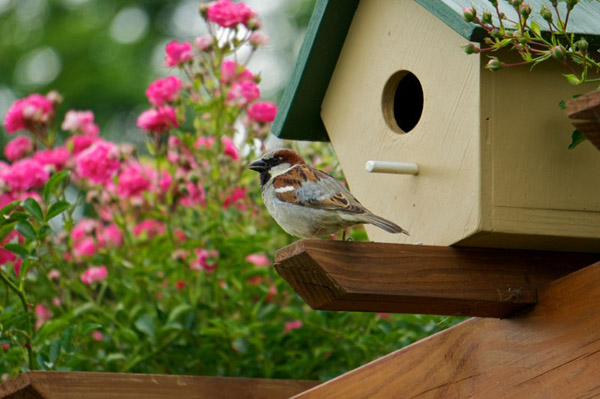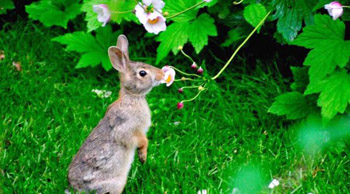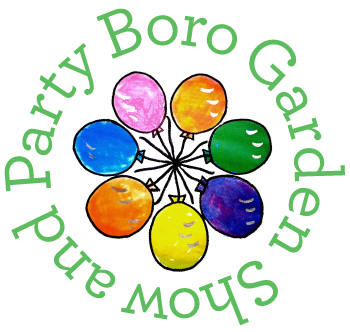
One of the points within the Tennessee Smart Yard program, a certification program open to any homeowner, is providing for wildlife. Wildlife includes any of the birds, mammals, reptiles and amphibians that are native to our area. What type of wildlife would you want to have in your yard or on your property? Wildlife needs cover, water and food. Cover includes a nesting area but also refuge from the weather and predators. You will need to familiarize yourself with the needs of the wildlife that you want to attract. Any dead trees that you keep on the property for your wildlife support should be at a distance from buildings to minimize damage from their fall.
Songbirds, rabbits, frogs, bats, squirrels and butterflies are the most commonly attracted ones, but you may find yourself watching raccoons, opossums, lizards, dragonflies, owls and even white-tailed deer. Some require dead trees, others need a rock/brush pile; tall grasses and weeds are another type of cover area. The size of your yard will determine how many areas you can offer that support wildlife. With any life cycle, expect to be witness to life-cycle events.
In addition to the living area for the animals, do you have a water source? Water is needed to support any wildlife. The most varied wildlife will do best with a small pond. It should be no deeper than two feet, ideally placed in a partially sunny location. Birds can use birdbaths, but the sunken pool will support amphibians, reptiles and insects. Insects are the food source for bats and birds. The water source should be available year-round. You may choose to dig a hole in a clay location of your yard or install a small pond complete with pumps. The water needs to be clean so the wildlife will use it as a source for living.
 Try to plant native species of a wide variety. Many ornamental plants do not support our native wildlife. You do want to plant annual flowers, herbaceous plants, low and tall shrubs, vines and small and tall trees. This wide variety of plant species encourages cover for a variety but also is a food source. The same animal can have different food needs throughout the year. As an example, birds feed primarily on seeds, but will switch to insects when raising their young. Consider planting a combination of plants that will provide nuts, seeds, fruits, berries and flower nectar. What they attract will act as food for other wildlife which brings me back to witnessing the cycle of life statement that I made earlier.
Try to plant native species of a wide variety. Many ornamental plants do not support our native wildlife. You do want to plant annual flowers, herbaceous plants, low and tall shrubs, vines and small and tall trees. This wide variety of plant species encourages cover for a variety but also is a food source. The same animal can have different food needs throughout the year. As an example, birds feed primarily on seeds, but will switch to insects when raising their young. Consider planting a combination of plants that will provide nuts, seeds, fruits, berries and flower nectar. What they attract will act as food for other wildlife which brings me back to witnessing the cycle of life statement that I made earlier.
In planning and planting your wildlife refuge, mimic nature. Intermix areas of open grass, shrubs, and trees. As you plan your yard, don’t forget to plan places for yourself. Provide a refuge with a seat among the trees. Have the bird feeders within view of your windows. Draw up your plan on graph paper; decide if you or a landscaper will be doing the work. Realize that vegetation growth does take time and every stage of the wildlife support and the yard transformation needs to be accepted each season for what it is.
Spring is the best time of the year to get started on plantings and alterations.
The Boro Garden Party has ideas and plants, classes, and workshops for both the nominal and the involved home gardener. Of special interest to the apartment and condo dwellers within the ’Boro are the sessions devoted to container gardening. The idea is to utilize any available space for productivity. That productivity could be producing smiles from the attracted birds or growing you the most delicious tomato you have ever eaten. Perhaps the walkway gets lined with flowering containers, and you smile. My point is that you do not need acres to be a productive gardener. What do you want to produce?
The Boro Garden Party will be held at the Lane Agri-Park Community Center on March 31 and April 1, from 9 a.m. to 5 p.m. As it falls within school vacation week, two children under 13 get in free with an adult ticket purchase of $5. There are free children’s activities as well as classes and workshops to help adults grow their own happiness. The Murfreesboro Pulse is a sponsor of the event. Tickets are available at the door.
Activities for supporting our waterways and classes at the Lane Agri-Park for the month of March:
March 7 – Tai Chi – Lane Agri-Park Auditorium
The first class of eight consecutive weeks; 60-minute sessions. Preregister (615) 898-7710 or cybush@utk.edu
March 9, noon–4 p.m. – Riparian Tree Planting – Jordan Farm, 1233 Cherry Lane
Tree seedlings to be planted along the stream. Dress accordingly. Pre-register with Cynthia Allen at cynthia.allen@mtsu.edu or (615) 898-2660. (rain date March 10)
March 23–25 – Beginner Beekeeping – Lane Agri-Park Auditorium
Rutherford County Beekeepers Association hosts beekeeping classes from 6:30–9 p.m. on Thursday and Friday, and 9 a.m.—noon on Saturday. For more information or to register, call Keith or Robbin Elrod at (615) 274-3725.
March 25 – Earth Hour 2017
Turn off all lights from 8:30–9:30 p.m. to participate in the Earth Hour 2017
 March 31 and April 1, 9 a.m.–5 p.m.
March 31 and April 1, 9 a.m.–5 p.m.
Boro Garden Party
Lane Agri-Park Community Center
315 John R. Rice Blvd.
Join the spring fun at the Boro Garden Party. Vendor booths, garden ideas, flower arrangements, speakers, demos, workshops, an art/photography show, free children’s activities and entertainment comprise this annual event. Entry fee includes scheduled speakers sessions. Workshops are an additional cost as students leave with made their products. Pre-register for workshops on making honey products, essential oils, wild harvesting, black gold and natural soda.
Friday, March 31, 10 a.m. at the Boro Garden Party – Oaklands Mansion: Historic Plantings at the Maney Spring and the Arboretum – Connor Moss, Master Gardener Curator
The grounds of the Oaklands Mansion are home to historic plantings that have stories attached to their years of growth. Join Connor Moss for a slide show of the Mansion property, including the Maney Spring and the recently recognized Oaklands Arboretum. Tickets to the Boro Garden Party that are purchased at the Oaklands Mansion Gift Shop are a donation to the Garden and Grounds Fundraiser for the Oaklands Mansion property. Help support Oaklands!
Friday, March 31, 11:30 a.m. at the Boro Garden Party – Eating Your Colors through the Seasons – Megan Fraley, Health Coach
The importance of growing your own produce from seeds and why some varieties should be selected over others will start the talk by health coach Megan Fraley. The importance of eating for the season, eating your colors and what that means nutritionally, assessing the nutrition of the produce and how to maintain the nutrition in cooking will be covered in the presentation.
Friday, March 31, 12:30 p.m. and Saturday, April 1, 2 p.m. at the Boro Garden Party – Plants for Winter Interest – Jeff Harvey, Dirt Dawg Nursery
Include the winter season in your garden plans. Jeff Harvey will discuss planting for winter color and architectural interest in the dormant season. The care and culture of evergreens as well as ideas for companion summer plants will be part of the slideshow.
Saturday, April 1, 9:30 a.m. at the Boro Garden Party – Brewing Up a Garden – Ben Valentine
Choosing and growing hops and other plants that are used in the brewing process will be presented by Ben Valentine. Ben is a member of the Mid-State Brew Crew and has brewed “La Fortune” commercially at Bearded Iris Brewing in Nashville. Brew kits for planting your own “brew” garden will be available for purchase.
Saturday, April 1, 11 a.m. at the Boro Garden Party – Success with Container Gardening – Loraine Sutton, M & L Greenhouse
If you are growing flower baskets, hanging baskets, vegetables in pots or a potted herb garden, you need to prepare it for success. Loraine Sutton will show the details for beautiful plants grown in containers with this class in container preparation and choosing the right soil mixture and nutrients. Loraine speaks to groups and offers classes at her greenhouse.
Saturday, April 1, 12:30 p.m. at the Boro Garden Party – Collecting and Using Free Water – Rutherford County Master Gardeners
Linda Lindquist, Rebecca Cowan and Edwina Shannon will be present a practical and efficient use of water, both as a money saver and an environmental responsibility. The talk will include watering your property efficiently, collecting rain in barrels and cisterns, drip irrigation and installing rain gardens. Slides and an optional walk through the demo gardens will show these ideas at work.
Saturday, April 1, 8:30 a.m.–11:30 p.m. – Parks Day Clean Up – Old Fort Park Pavilion No. 2
Community volunteers will remove and treat invasive plant species in the park and along Lyle Creek, and remove litter in those areas as well. Dress accordingly. Pre-register with Cynthia Allen at cynthia.allen@mtsu.edu or (615) 898-2660.













